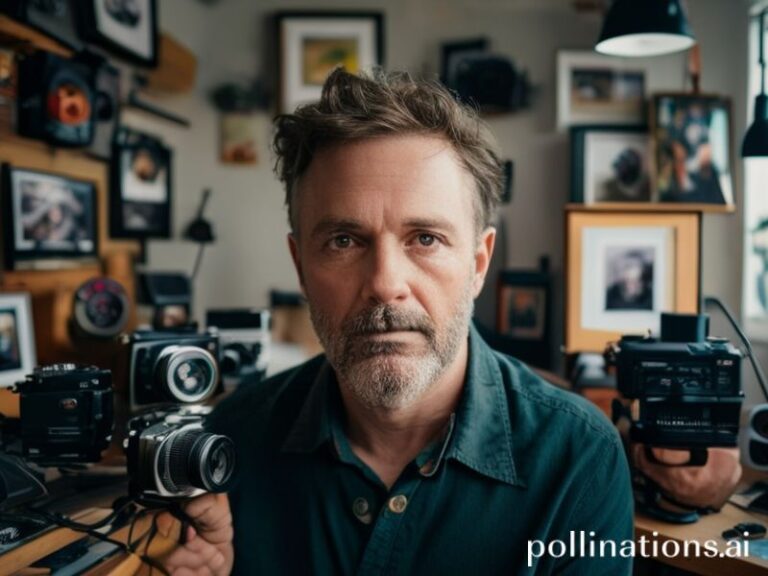Wizz Air & Whisky: How a €19 Seat Sale Turned Romania’s Brain Drain into Canada’s Gain
Rumanía—Canadá: A Transatlantic Pas de Deux in the Age of Cheap Flights and Expensive Consequences
By Dave’s Locker Foreign Desk
It began, as most modern tragedies do, with an online sale. Wizz Air offered €19 tickets from Bucharest to Toronto, provided you were willing to change planes in Reykjavík at 3 a.m. and sell a kidney for baggage fees. Three hundred Romanians clicked “purchase” before breakfast; by sundown, Canada’s immigration website was gasping like a pensioner after a stair-climb. And thus, the great Rumanía–Canadá moment of 2024 was born—not so much a diplomatic incident as a lifestyle trend with geopolitical side-effects.
Let us zoom out, because that is what worldly correspondents do when the coffee is terrible and the hotel Wi-Fi charges by the megabyte. The movement of Romanians to Canada is no longer the post-Ceaușescu refugee saga your high-school textbook filed under “Cold War denouement.” Today it is an accelerated, algorithm-driven shuffle of nurses, IT support staff, and OnlyFans entrepreneurs who discovered that Alberta’s oil patch pays better than Bucharest’s influencer economy. Global staffing shortages, Canada’s insatiable appetite for “skilled” humans who can pronounce “about” correctly, and the eternal Romanian talent for leaving home faster than you can say “tax evasion” have converged into a perfect storm. The World Bank calls it “labor market optimization.” The Romanians on the 2 a.m. Cluj-Napoca–Istanbul connector call it “Tuesday.”
The numbers are almost charmingly modest—just under 25,000 Romanians became permanent residents last year, a rounding error in Canada’s annual intake—yet the ripples travel surprisingly far. Hospitals in Brașov now advertise signing bonuses in Tim Hortons gift cards. Canadian pension funds, smelling yield, have started buying up Bucharest office blocks on the assumption that someone will still need a place to Zoom into Toronto. Meanwhile, the European Union frets quietly: every Romanian who swaps the Carpathians for the Rockies is one fewer worker paying into the social-security systems that keep Italian retirees in Chianti. Brussels has filed the matter under “strategic autonomy,” which is Eurocratese for “please God, not another Brexit.”
There is, of course, the inevitable culture clash. Canadians, genetically predisposed to apologize to furniture, find themselves supervising construction crews whose safety briefing includes the phrase “if you die, we drink at your wake.” Romanians, raised on a diet of Byzantine bureaucracy and 90-proof optimism, regard Canadian paperwork as a quaint hobby, like curling. The result is a thriving black market in “certified” English tests and a cottage industry of immigration consultants who promise PR cards in exchange for three goats and your grandmother’s pension. Both sides pretend not to notice that the goats are metaphorical.
One cannot ignore the broader symbolism. The Rumanía–Canadá corridor is a microcosm of what happens when rich countries outsource demographic renewal to poorer ones, and poorer countries outsource political discontent to richer ones. The arrangement is elegant, ruthless, and entirely dependent on jet fuel staying below €800 per metric ton. Should prices spike, thousands of freshly minted Canadians will discover that Zoom calls from Suceava feel remarkably similar to exile, minus the healthcare. Should prices collapse, the Prairies will echo with Romanian lullabies and the gentle weeping of xenophobes who thought they’d voted for 1950s demographics.
Back in Bucharest, the government has rebranded emigration as “diaspora diplomacy.” Translation: we’ll keep training engineers, you keep sending remittances, and everyone politely ignores the brain-drain-shaped hole in the national budget. Ottawa, for its part, has added Romanian to the Express Entry list of “minority languages,” right below Tagalog and just above despair. Both capitals have agreed to a joint working group on “circular migration,” which sounds progressive until you realize it’s an HR euphemism for “please come back when you’re 65 and need cheap dental work.”
And so the planes keep flying, full of hope, hand sanitizer, and duty-free tuica. Somewhere over Greenland, a newly landed Romanian nurse scrolls through TikTok videos of snowbound Toronto bungalows priced at C$1.2 million and mutters the prayer of every modern migrant: “Dear God, let the algorithm be wrong.” Spoiler: it rarely is.
Conclusion: In the grand ledger of globalization, Rumanía–Canadá is a footnote that thinks it’s a chapter. It won’t reshape NATO strategy or shift the climate crisis by a single millimeter. But it does remind us—sardonically, cruelly, accurately—that national destiny now hinges less on five-year plans and more on flash sales on budget airlines. Borders are porous, hearts are portable, and citizenship is just another subscription service with better healthcare. Buckle up, humanity; turbulence ahead, and the in-flight movie is a documentary on compound interest.







